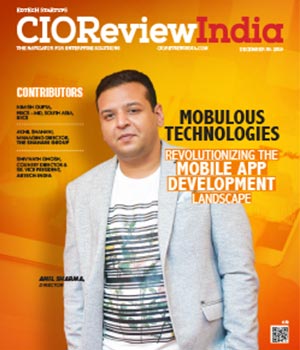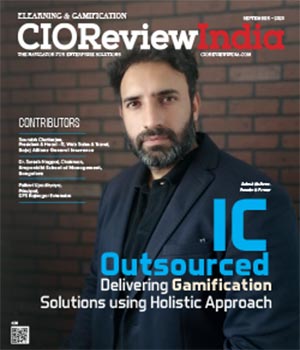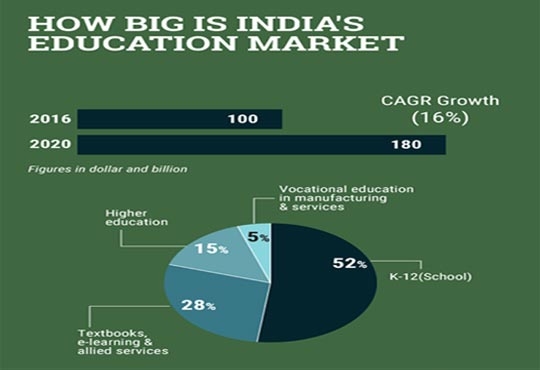
Data Analytics in EdTech: Utilizing Big Data to Improve Learning Outcomes
Darshan.K, Assistant Editor, CIOTechOutlook | Friday, 05 April 2024, 12:13 IST
 To understand the pinnacle of what data analytics can do to edtech, one needs to look at Khan Academy. It is the largest non-profit online learning platform, with over 140 million registered users. It was one of the first edtech pioneers to leverage data analytics and provide a customized learning platform. This paved the way for numerous edtech firms to incorporate big data into their applications. Educators and institutions now have access to tremendous pools of data, which can allow them to enhance the student experience and learning outcomes. From major tech giants to startups in education, these are the preliminary boxes on the checklist of big data that all of them look to tick off.
To understand the pinnacle of what data analytics can do to edtech, one needs to look at Khan Academy. It is the largest non-profit online learning platform, with over 140 million registered users. It was one of the first edtech pioneers to leverage data analytics and provide a customized learning platform. This paved the way for numerous edtech firms to incorporate big data into their applications. Educators and institutions now have access to tremendous pools of data, which can allow them to enhance the student experience and learning outcomes. From major tech giants to startups in education, these are the preliminary boxes on the checklist of big data that all of them look to tick off.
Personalized Learning Pathways
“Data is a tool for enhancing intuition.” Structured data enables the creation of pathways that leverage machine learning algorithms to analyze vast amounts of student data, which majorly includes performance metrics, engagement patterns, and learning styles of each student. This gives the instructors an intuition about the requirements of every student, allowing them to formulate instructional materials and activities unique to all their students.
This is one factor that makes Duolingo stand out from its competitors. It tailors an organized plan for whatever language the user wishes to learn, rolls out adequate rewards, and ensures they regularly take their sessions without fail for all users. By analyzing their performance with the exercises it modifies its difficulty, pacing and strategies to optimize the learning outcome for every individual. This optimal usage of leveraged data is what allows the app to have high retention rates.
"Student engagement in online learning merits much attention and effort, considering that learning effectiveness, retention and completion rates, student motivation, and accountability are directly attributed to the level of learner engagement," Parimala Veluvali, Director and Associate Professor, Symbiosis School for Online and Digital Learning.
Adaptive Content Delivery
Adaptive content delivery systems can utilize predictive analytics to anticipate the learners’ knowledge gaps and adaptively present instruction materials based on their current proficiency. This structure employs algorithms that constantly study the student’s performance and adjust the difficulty of the content accordingly in real time.
Smart Sparrow is an adaptive learning platform that can provide supplemental assistance to students. The platform employs complex algorithms and artificial intelligence to personalize the learning experience for students. For example, if a student struggles to grasp a physics topic, smart Sparrow will provide additional explanations in the form of visual aids or interactive exercises to reinforce their understanding of the said topic. If the student has proven his/her understanding, it may offer advanced content for the student to explore and master.
"The rise of the digital era has helped students to be able to engage with multiple areas of knowledge simultaneously, allowing them to acquire diverse skills from across various disciplines. This multifaceted approach not only allows students to broaden their skill set but also enhances their capacity to thrive in a competitive industry," Prof. Prakash Gopalan, President, NIIT University.
Learning Analytics Dashboards
Analytics dashboard is a clear and concise way to understand data in a visual format. It provides a summary of the student’s engagement, progress timeline and outcomes, providing educators with an insight on their next course of action. These dashboards integrate information from multiple sources like management systems, assessment platforms and student information systems.
Numerous education institutes worldwide deploy Canvas Analytics learning management systems. It offers a complete suite of learning analytics for educators via customizable dashboards. Through interactive charts, graphs and reports these dashboards provide educators with the means to personalize their instruction, support students in the red and optimize educational experiences for all the students.
Predictive Modeling for Student Success
Predictive modelling techniques, such as machine learning algorithms, analyze historical data on student performance, behaviours and demographics to forecast said student’s future outcomes, such as academic success, retention and graduation rates. These models identify factors and indicators that correlate with student success and enable the teaching faculty to intervene and take timely measures to support students who are not performing well or those who are on the verge of dropping out.
The University of Maryland, Baltimore County (UMBC), implemented predictive modelling algorithms to identify students at risk of academic probation or dropout. By analyzing data on course grades, attendance, and library usage, UMBC's predictive models accurately pinpointed students who were likely to struggle academically, allowing advisors to provide targeted support and resources to help them stay on track towards graduation.
"The value isn’t the volume of data you store; the value is in understanding how the data can provide clues to improved care," Craig Richardville, SVP & CIO, Carolinas Healthcare System.
Classroom learning is an activity as old as time itself. Ever since the concept of mass education came into play, the system has barely evolved, but with the advent of the internet and the pandemic, educators have witnessed a paradigm shift with the normalization of online classes. This has propelled universities to have a strong online presence to give additional materials to their students, ensuring that everyone can learn at their own pace, and it is all made possible thanks to data.
CIO Viewpoint
Cloud Enabled Edtech Spaces Enriching Learning...
By CIOTechOutlook Team
Challenges and Issues of Online classes
By R. Chandran, Chief Information Officer, Bahwan Cybertek
Educational Technology, Digital Learning In The...
By Swati Sankhye, Chief Information Officer, MIT World Peace University
CXO Insights
Optimon: Smart Manufacturing Solutions...
By Srinivas Kallakurchi, President & Chief Strategy Officer
Education Should Be A Want And Not A Need
By Dr. Prem Das Maheshwari, Business Director, South Asia, D2L
Current Industry Trends In Education














